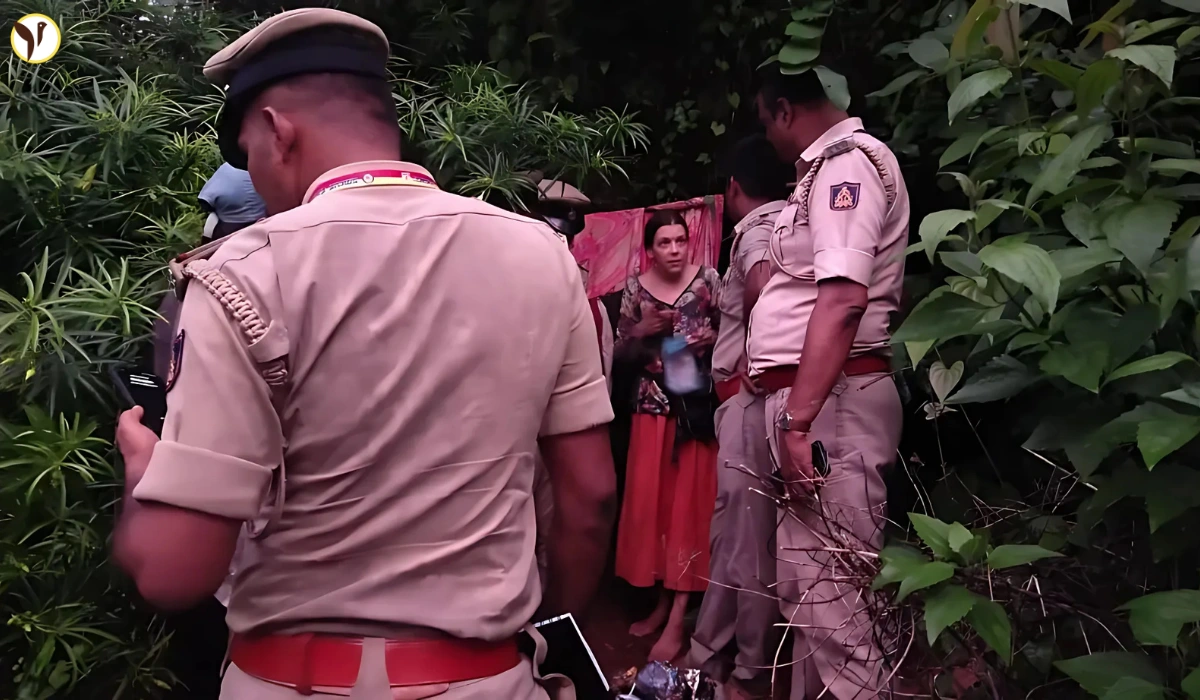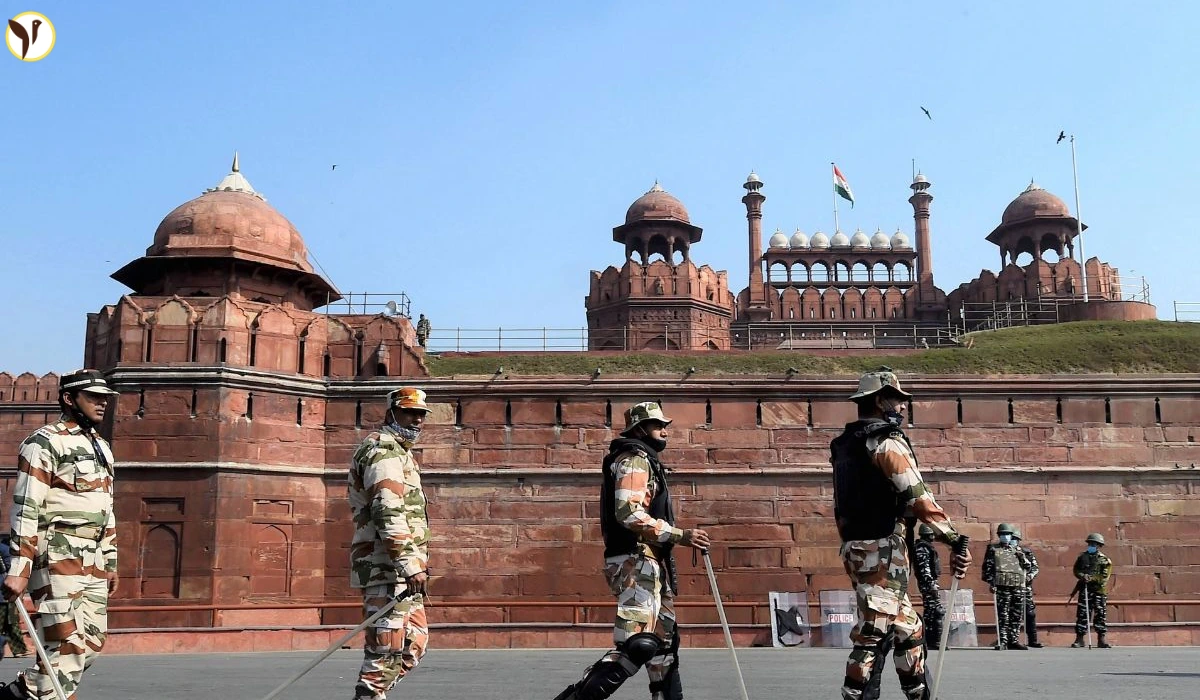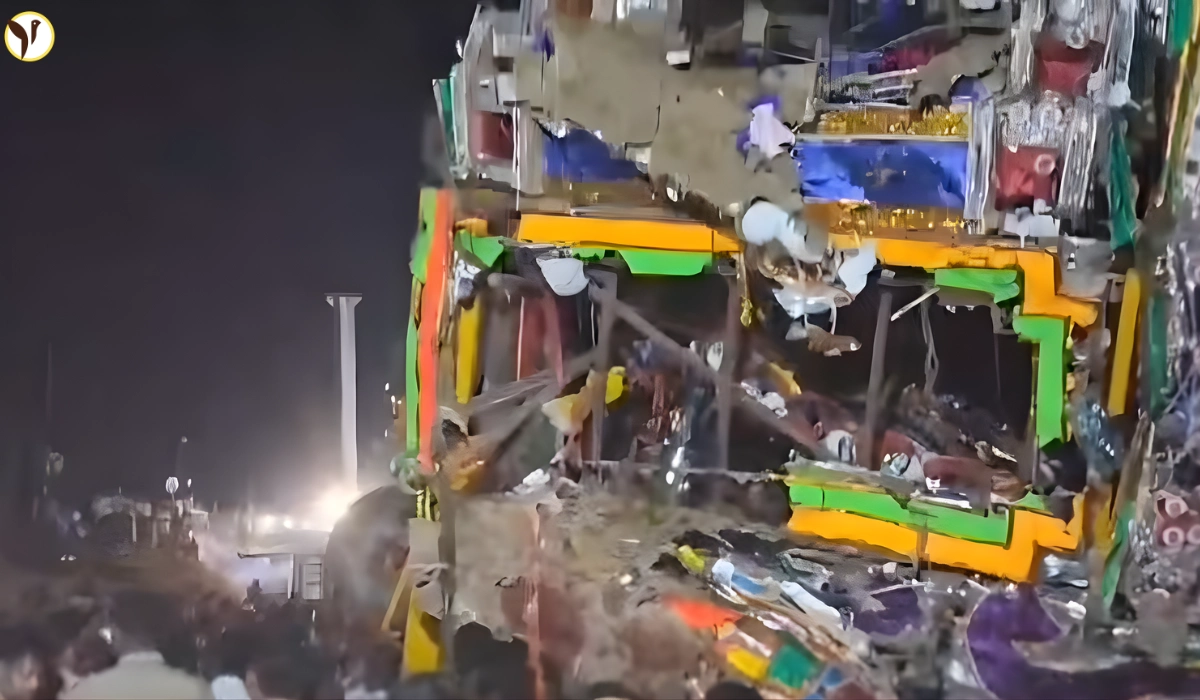Local police made the discovery during a routine patrol of the hilly Ramatirtha forest area on July 6, 2025. The area is popular with spiritual seekers but also known for dangerous terrain and wildlife. Officers noticed a young girl with blonde hair running from a hidden path. On investigating, they found 40-year-old Russian national Nina Kutina, living inside a makeshift cave dwelling with her two daughters, aged 4 and 6.
Inside the cave, officers found basic household items, clothes, food supplies, and paintings of Hindu deities on the walls. Saris were hung as curtains, and a small worship area had been set up. Despite the lack of electricity, clean water, and other modern amenities, the cave appeared to be their home.
Kutina reportedly told the officers that she had come to the forest for spiritual reasons — to live close to nature, meditate, and worship God. She claimed to have stayed there for nearly two months, but locals believe she may have been living in the region for even longer.
Spiritual Living, Legal Trouble, and Custody Battle
Kutina’s story took a legal turn when authorities discovered she had overstayed her visa by nearly seven years. She had first entered India on a six-month business visa in 2016. After briefly leaving, she returned in 2020 — but failed to extend her documents legally. As a result, immigration authorities immediately began deportation procedures.
The woman and her daughters were temporarily moved to a local spiritual retreat for safety and shelter, and then to a government care facility. Her daughters appeared healthy but under constant watch. Officials also said that Kutina had earlier lived in Goa and had been living off donations from foreign tourists and followers who believed in her spiritual lifestyle.
Meanwhile, a man who identified himself as the children’s father — reportedly an Israeli businessman — came forward. He claimed he had filed a missing person report and requested joint custody of the children. He also raised concerns about the children’s welfare and safety, alleging he had no idea of their whereabouts until media coverage emerged.
Kutina responded emotionally, alleging that her personal belongings — including the ashes of her deceased son — were taken by authorities. She also expressed dissatisfaction with how she and her daughters were being treated while in government custody.
Despite her claims of a peaceful lifestyle, the location of the cave raised safety concerns. The forest is known to house poisonous snakes and is vulnerable to landslides during the monsoon season. Authorities expressed relief that no harm had come to the children but stressed that such an environment is not suitable for young kids.
What Authorities and Locals Are Saying
Local police say they acted only after spotting the family by chance. “We conduct regular patrols because of landslide and snakebite risks. We were surprised to see a woman and two small girls living there,” one officer told the media. They added that Kutina initially resisted help, insisting she was doing fine and had chosen this life willingly.
A few villagers recalled seeing the woman in the area weeks before the discovery. According to them, she occasionally came into nearby markets for basic groceries but otherwise stayed hidden in the forest. Some also claimed to have seen her with followers, including foreign tourists who respected her spiritual mission.
Kutina is not the first foreign national to seek isolation for spiritual purposes in India. Over the years, several individuals — from Japan to the United States — have been found meditating or living off-grid in forests, caves, or remote temples. However, overstaying a visa is a violation of Indian immigration laws, regardless of personal motivations.
As of now, Indian immigration officials are working with the Russian Embassy in New Delhi to deport Kutina and send the children safely back to their home country. Legal custody issues remain unresolved, and it's unclear whether the children will stay with their mother or father.
‘Did not bring my daughters to die’: Russian mother defends decision to live in cave https://t.co/xVsOxeJ6x2 pic.twitter.com/WMKLh7Bjv1
— The Independent (@Independent) July 17, 2025
A Life That Raises Many Questions
The story has sparked mixed reactions online. Some people admire Kutina for choosing a life of simplicity and spirituality, away from modern pressures. Others worry about the risks she exposed her daughters to by living in an unprotected forest cave, without basic facilities like healthcare, schooling, or sanitation.
Experts say the case underscores a growing trend of spiritual tourism turning into illegal settlement. “Many come to India for peace or enlightenment, but some fail to follow legal procedures or ignore safety norms,” said a sociologist from a Bengaluru university. “When children are involved, the state has a duty to intervene.”
Kutina’s situation has also revived conversations about how governments should treat foreign nationals who overstay visas due to spiritual or ideological reasons, rather than financial or criminal intent.
Conclusion
The case of Nina Kutina and her daughters living in a cave near Gokarna is a reminder that personal choices, even when guided by spiritual motives, must still align with legal and social responsibilities — especially when children are involved.
While Kutina’s intention to live a quiet, spiritual life may be genuine, authorities must ensure the safety and rights of the minors, the enforcement of immigration laws, and a fair legal process for everyone involved.
The family remains in protective custody as legal proceedings continue, and the final outcome — including custody and deportation — is still being decided.









